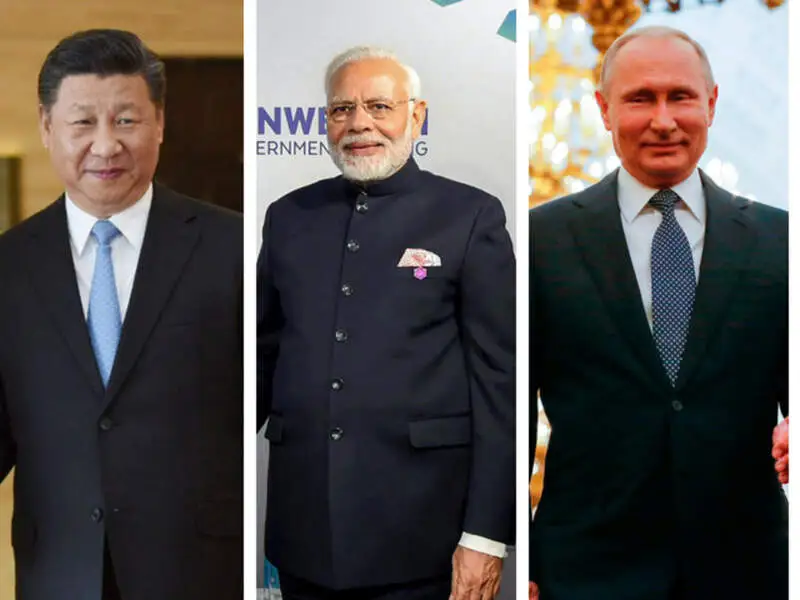The concept of power has fascinated people for centuries.
From ancient rulers to modern-day politicians and business leaders, the title of “most powerful person in the world” is highly coveted and hotly debated.
But what makes someone truly powerful?
Is it their wealth, their political influence, their command over resources, or their ability to shape the world around them?
What is power and how is it measured?
Many factors are considered when determining the most powerful people in the world. These factors can include:
- Political power: This refers to the amount of control that a person has over the government and its policies. Heads of state and government officials are often considered to be some of the most powerful people in the world.
- Economic power: This refers to the amount of wealth and resources that a person controls. Billionaires and CEOs of major corporations are often considered to be some of the most powerful people in the world.
- Military power: This refers to the size and strength of a person’s military forces. Leaders of countries with large and powerful militaries are often considered to be some of the most powerful people in the world.
- Media power: This refers to the ability to shape public opinion and influence the way people think. Media moguls and celebrities are often considered to be some of the most powerful people in the world.
- Social media power: This refers to the ability to connect with and influence large numbers of people through social media platforms. Social media influencers and celebrities are often considered to be some of the most powerful people in the world.
The relative importance of each factor can vary depending on the specific context. For example, political power may be more important in determining the most powerful people in a country with a strong central government, while economic power may be more important in determining the most powerful people in a country with a free market economy.
In this article, we will explore how these sources determine the most powerful person in the world and who are some of the people who have made it to the top of these lists. We will also discuss the subjectivity of these lists and the different factors that can influence the rankings.
10. Jerome Powell, Chair of the Federal Reserve of the United States
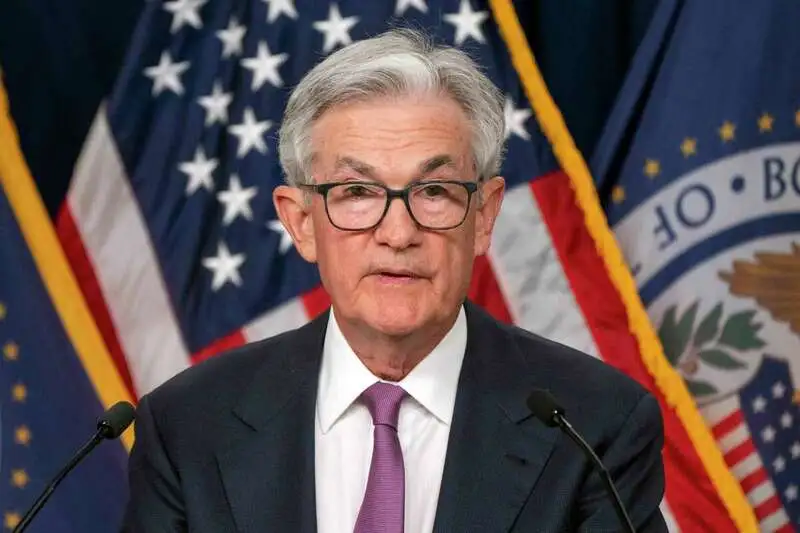
Jerome Powell is the current chairman of the Board of Governors of the Federal Reserve System (the Fed), the central bank of the United States.
He is considered to be one of the most powerful people in the world, with the ability to influence the direction of the global economy through his decisions on monetary policy.
He was appointed by President Donald Trump in 2018 and reappointed by President Joe Biden in 2022 for another four-year term.
Powell is the first non-economist to become Fed chair in 40 years and has held many positions at the Fed, including vice chairman from 2012 to 2018.
Powell is not considered to be a hawk or a dove, but rather someone who tries to balance the need to control inflation with the need to support economic growth (a relatively moderate central banker).
Not just that, he is also considered a consensus builder, and he has maintained the support of other members of the Fed’s Board of Governors.
His position as Fed Chair is considered to be one of the most powerful economic institutions in the world. This is due to the central bank’s influence on monetary policy and its impact on the global economy.
The Fed’s core responsibilities include setting interest rates, managing the money supply, and regulating financial markets.
It also acts as a lender of last resort during economic crises, as demonstrated during the 2008 financial meltdown and the COVID-19 pandemic.
The Fed has broad power to ensure financial stability, and it is the primary regulator of banks and members of the Federal Reserve System.
It acts as the lender of last resort to member institutions that have no other place from which to borrow.
Overall, the Federal Reserve plays a crucial role in maintaining the stability of the U.S. economy and financial system, and its actions can have significant impacts on global markets.
9. Mark Zuckerberg, CEO of Meta
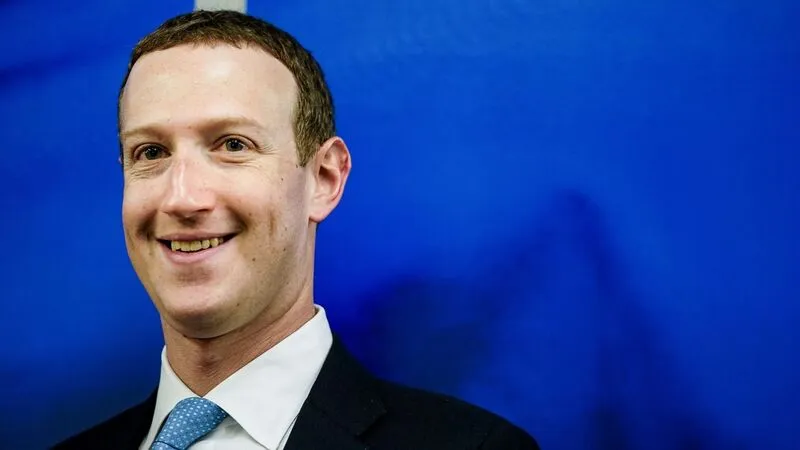
Mark Zuckerberg is the CEO of Facebook, now known as Meta.
He has a significant amount of power within the company due to his ownership of 55% of the company’s voting shares, giving him majority control.
This level of control has been debated by experts who say it’s “a bad idea” for one person to hold so much control over a company as large as Facebook.
Meta owns Facebook, Instagram, and WhatsApp. These three platforms have a combined user base of over 3.6 billion people, making them some of the most popular social media platforms in the world.
Zuckerberg holds considerable power and influence, his ability to directly influence global politics is still subject to various factors, including regulatory frameworks, public sentiment, and the actions of other stakeholders.
Not just that, Facebook’s advertising platform provides a powerful tool for political campaigns to target specific demographics and spread their messages. Zuckerberg can shape the policies and guidelines surrounding political advertising on Facebook, influencing the reach and impact of political campaigns.
As the CEO of Facebook, Zuckerberg plays a key role in determining the content moderation policies and practices of the platform. Decisions regarding the removal or promotion of certain content can have political implications and influence the information landscape.
8. Emmanuel Macron, President of France
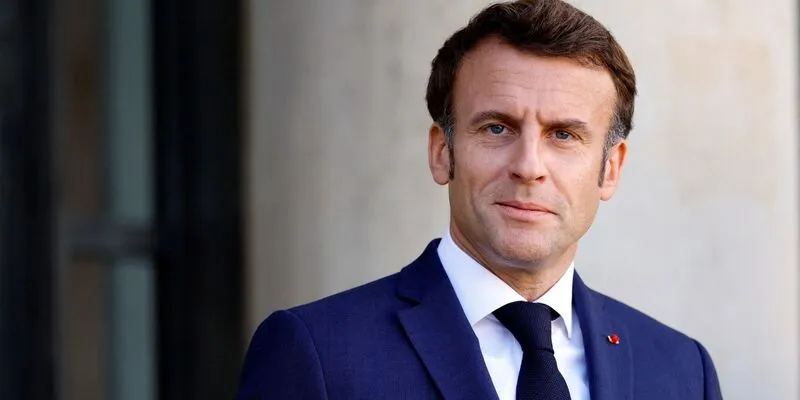
Emmanuel Macron is the President of France, having been re-elected for a second term in 2022.
As the President of France, he holds a lot of power in French politics.
France’s constitution has evolved to consolidate more power in the president, making the president a “super president” with control over the government, parliament, and the Constitutional Court.
Macron’s party, La République en Marche, won a large majority in parliamentary elections in 2017, giving him significant control over the government. Macron has used his special constitutional power to impose reforms, such as pension reform, which have been met with protests and strikes.
Macron’s leadership style has been described as that of a political entrepreneur, whose fortunes lie closely in the rejection, dislocation, and imperfect reconfiguration of the existing party system.
France is a member of the European Union (EU) and has been a leading member in its development.
France has engaged in long-running disputes with other European powers but has emerged as a leading EU member.
France’s influence within the EU comes from its economic power, diplomatic efforts, and role in shaping EU policies.
Macron has been pushing for EU reform and has gained new impetus for his push to make Europe more powerful and independent
7. Mohammed bin Salman, Crown Prince of Saudi Arabia
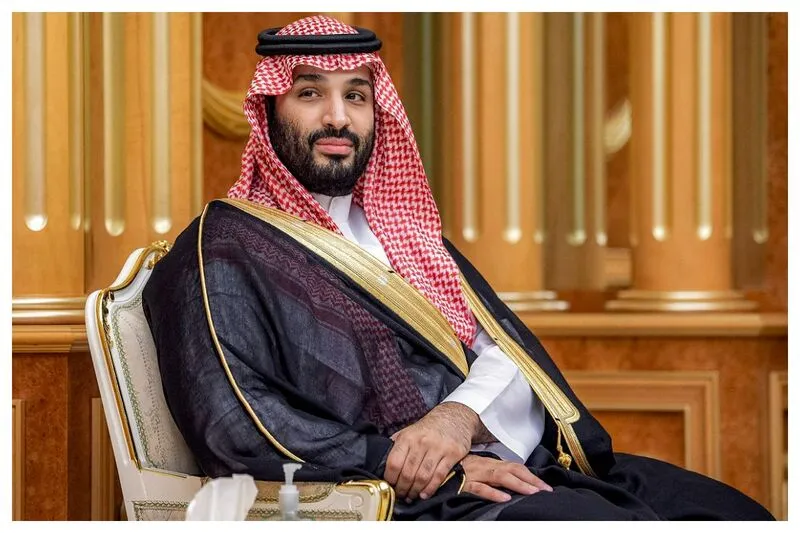
Mohammed bin Salman is the Crown Prince of Saudi Arabia and is considered the de facto ruler of the country.
He is also the Prime Minister of Saudi Arabia, chairman of the Council of Economic and Development Affairs, and chairman of the Council of Political and Security Affairs.
Mohammed bin Salman’s rise to power began in 2013 when he was named head of the Crown Prince’s Court, with the rank of minister. In 2015, his father became king and appointed him as minister of defense. His power increased with his appointment in April 2015 as deputy crown prince, second deputy prime minister, and president of the Council of Economic and Development Affairs.
In 2017, he was promoted to crown prince after the dismissal of Crown Prince Muhammad bin Nayef.
As the Crown Prince and de facto ruler of Saudi Arabia, Mohammed bin Salman holds a significant amount of power within the country. Saudi Arabia is an absolute monarchy, meaning that the king holds almost all political power.
The Crown Prince is next in line to the throne and holds significant influence over the country’s policies and direction.
6. Pope Francis, head of the Catholic Church
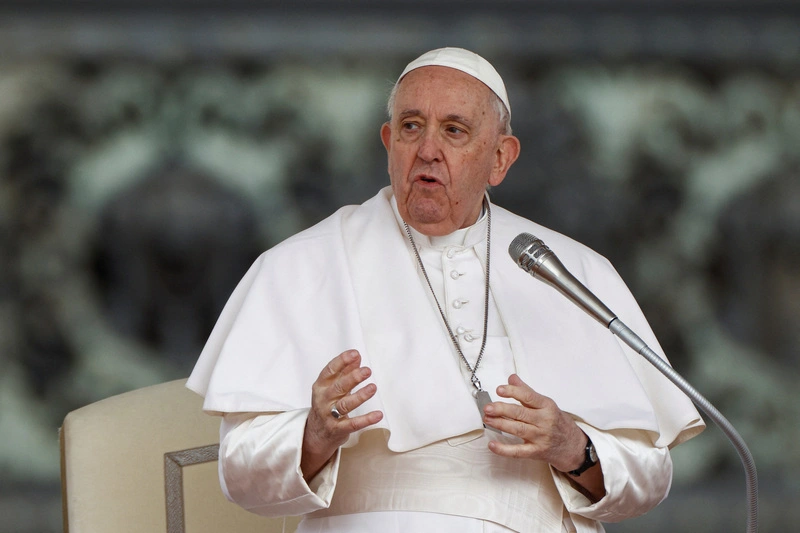
Pope Francis is the head of the Roman Catholic Church and the Bishop of Rome. He is considered one of the world’s most powerful people due to the extensive diplomatic, cultural, and spiritual influence of his position on both 1.3 billion Catholics and those outside the Catholic faith.
He heads the world’s largest non-government provider of education and health care, with a vast network of charities.
However, Pope Francis’ leadership style can be described as humble, compassionate, and reform-minded.
He is frequently called upon to act as a peace broker, mediator, advocate, and influencer. The Pope also has diplomatic power through the Holy See, which is recognized as a sovereign entity under international law and has diplomatic relations with over 180 countries.
The Pope (since middle ages) has played an active role in global politics, seeking to deepen and reorient the Holy See’s relationship with China and dampen inter-ethnic and inter-confessional conflicts in Ukraine
Overall, Pope Francis holds significant power and influence globally due to his position as the head of the Roman Catholic Church and his ability to shape global discourse on a wide range of issues.
5. Olaf Scholz, Chancellor of Germany
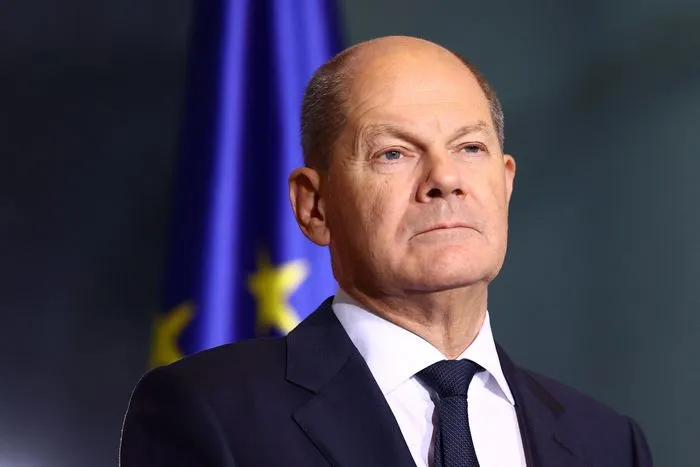
Olaf Scholz is the Chancellor of Germany, having taken office on December 8, 2021.
As the Chancellor of Germany, he holds a significant amount of power within German politics. Germany is the largest economy in Europe and one of the largest in the world, giving it significant influence within the European Union (EU) and globally.
Germany is a founding member of the EU and has been a leading member in its development.
The country has significant influence within the EU due to its economic power, its diplomatic efforts, and its role in shaping EU policies.
Germany is also a member of the G7, G20, and NATO, among other international organizations, giving it a strong voice on the global stage.
4. Narendra Modi, Prime Minister of India
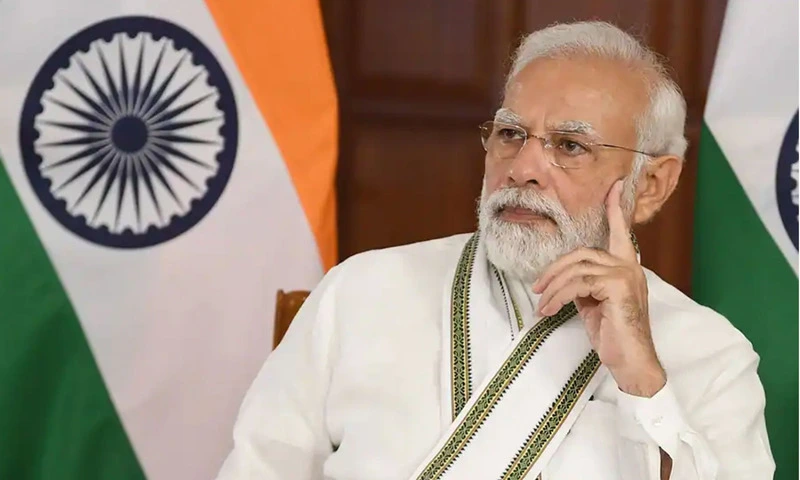
Narendra Modi is the current Prime Minister of India and a senior leader of the Bharatiya Janata Party (BJP).
He has been described as a polarizing figure in Indian politics, but also as one of the most popular politicians in India since Indira Gandhi. Under his leadership, the BJP won two sweeping and comprehensive victories in parliamentary elections and became the biggest political party in the world.
In terms of India’s economic, military, and diplomatic power under Modi’s leadership has seen several developments.
For example, in June 2023, President Joe Biden and Prime Minister Narendra Modi affirmed a vision of the United States and India as among the closest partners in the world – a partnership of two largest democracies looking into the 21st century with hope, ambition, and confidence.
The leaders also set a course to reach new frontiers across all sectors of space cooperation.
Modi has been praised for his efforts to modernize India’s economy, improve infrastructure, and promote social welfare programs.
India is on the path to becoming an economic powerhouse under Modi due to a combination of factors, including structural reforms, investment in infrastructure, and a focus on innovation and technology.
Economically, India’s GDP has grown 7.2% per year since Modi took office in 2014. This is the fastest growth rate in India since the 1980s.
The World Bank has also upgraded its forecast for the Indian economy to 6.9% from 6.5% earlier in the current fiscal year and projects India to be one of the fastest-growing major economies.
Modi has improved India’s self-reliance and defense preparedness.
For example, he launched 7 new defense firms to make India the world’s biggest military power on its own.
Under his leadership, India is also more likely than in the past to respond with military force to any real or perceived Pakistani provocations.
Diplomatically, India has taken a more assertive role in international affairs recently.
India has been more active in mediating conflicts in the Middle East and South Asia. India has also been more willing to challenge China’s dominance in the region.
3. Joe Biden, President of the United States

Joe Biden is the 46th and current president of the United States.
As the President of the United States and a senior member of the Democratic Party, Joe Biden holds a lot of influence within the party.
In addition to his formal powers, Biden also has a lot of informal influence within the Democratic Party.
He is seen as a consensus-builder and a moderate Democrat, which allows him to bring together different factions of the party.
He is also well-respected by Democrats in Congress, which gives him the ability to influence legislation.
As POTUS he holds a very powerful position, both domestically and internationally.
The powers of the president include those explicitly granted by Article II of the United States Constitution, as well as those granted by Acts of Congress, implied powers, and also a great deal of soft power that is attached to the presidency.
The Constitution explicitly assigns the president the power to sign or veto legislation, command the armed forces, ask for the written opinion of their Cabinet, convene or adjourn Congress, grant reprieves and pardons, and receive ambassadors.
The president also has the power to appoint and remove executive officers, make treaties (with Senate ratification), nominate ambassadors (with Senate confirmation), and confer diplomatic recognition on other governments.
In addition to these formal powers, presidents have also claimed informal powers over time. For example, presidents may use executive orders to direct the executive branch and carry the force of law. Presidents may also use signing statements to explain how their administration intends to interpret a law upon signing it into law.
2. Vladimir Putin, President of Russia
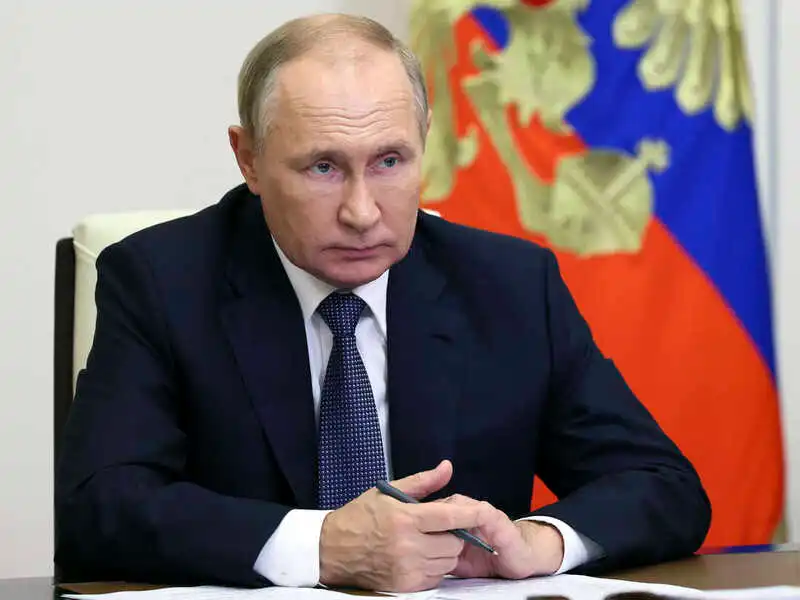
Vladimir Putin is the current President of Russia and has wielded near absolute power in Russia for 24 years.
He first became prime minister in August 1999 and has remained in power in either the position of prime minister (as defacto leader) or president ever since.
Putin is widely regarded as a strongman leader, and one of his main ambitions for Russia is to establish it as a strong world power that other countries around the world look up to.
Under his presidency, Russia is considered a major world power, with significant military, economic, and diplomatic influence.
According to the Global Firepower review, Russia is considered a Top 5 world power, with a Power Index score of 0.0714.
It is the world’s largest country and the largest oil producer. Russia retains its permanent seat on the UN Security Council and its nuclear arsenal has been progressively modernized.
Russia has also built alliances with countries around the world, including many countries in Central Asia, Belarus, Syria, Cuba, and Serbia. Russia often builds alliances with countries hostile to America and the West.
Russia occupies an unusual position on the world stage, with the capacity to destabilize the international order but not the capacity to fill the vacuums it exploits or creates.
1. Xi Jinping, President of China
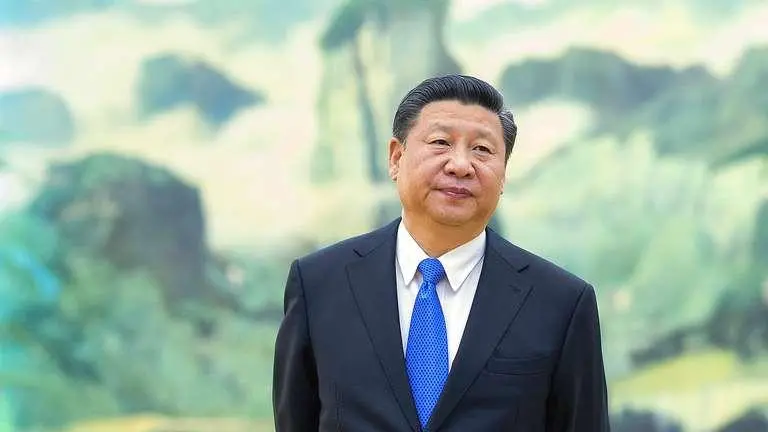
Xi Jinping is a powerful figure in Chinese politics, having consolidated his rule and projected an image of China as a global power during his decade in power.
Since Mao, Xi Jinping has strengthened his power as a leader and elevated his status within Communist Party (CCP) history, with major political resolutions announced on the final day of a key political meeting.
Under his rule, China has become a major power in the world, with growing economic, military, and diplomatic influence.
China has a growing military, with the world’s largest standing army and a focus on modernization and technological advancement.
In recent years, China has taken on an outsized role in international economics and politics.
As its economy expands, the world’s most populous nation is branching out in efforts ranging from transportation infrastructure expansion in Asia—known as the Belt and Road Initiative—to significant investment in Africa and South America.
China is also a major producer of electricity, producing approximately 30% of the world’s electricity in 2021.
In nearly all of the surveyed countries, a majority say China’s role in the world has increased over the past decade.
A median of 70% say China plays a more important role in the world today than it did 10 years ago.
